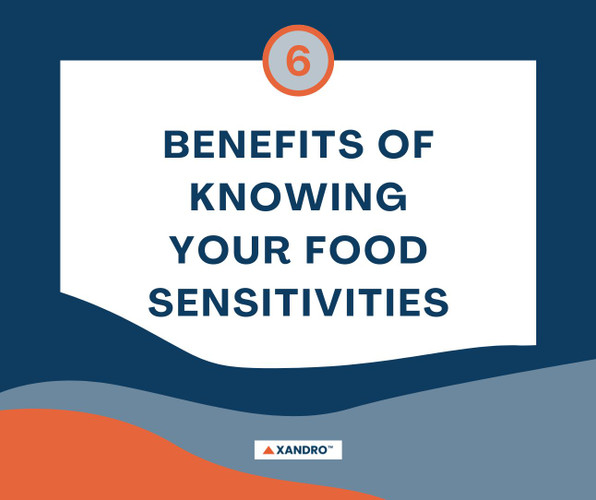The Benefits of Knowing Your Food Intolerances and Allergies
2nd Apr 2024
6 Benefits for Why You NEED to Know Your Food Sensitivities
The role of diet in our health is huge. What we eat affects how we feel, how our bodies work and how much energy we have. But what's good for one person might give another person pain, discomfort or even severe allergic reactions. That's why it's really important to know if you have any food intolerances or allergies. They can make a big difference in how you feel every day.
But first, let us understand the difference between food intolerances and allergies.
Food Intolerance vs Allergy
Food Intolerance: Food intolerance meaning is essentially when the body has difficulty digesting certain foods. Food intolerance symptoms include gas, bloating, diarrhea and stomach cramps. Typical examples include gluten sensitivity and lactose intolerance.
Food Allergy:Unlike intolerances, food allergies involve the immune system. Food allergy symptoms can range from a minor food allergy rash to life-threatening anaphylaxis because of the immune system reacting to the food. Common food allergies include shellfish and egg allergies, along with peanut food allergies.
Note that celiac disease, while commonly thought to be a food intolerance or allergy, is actually neither. It is, in fact, an autoimmune condition triggered by gluten.
Why Is It Important to Identify Food Allergies and Intolerances?
So, what are the benefits of knowing your food sensitivities?
1. Improved Digestion
Once you know what you are intolerant/allergic to, you can significantly relieve digestive discomfort. Your digestive system can function properly, reducing bloating, cramps and irregular bowel movements.
2. Improved Energy Levels
Many people with food intolerances experience being lethargic and fatigued. Once the problematic foods are pinpointed and removed, there can be a surge in energy levels. This is because your diet now supports your body rather than burdens it, making you feel more energised and alert.
3. Better Weight Management
Food sensitivities can sometimes lead to weight gain and even difficulty losing excess weight. This happens due to inflammation or water retention triggered by problematic foods. By removing these foods and eating a more nutritious and balanced diet, you may find it much easier to lose weight (if that’s your goal) or avoid piling on undesired pounds.
4. Better Skin Health
Another impact of food sensitivity-related inflammation could be acne or skin rashes. Once the triggering foods are removed, people often experience clear skin and complexion improvements.
5. Improved Focus and Mood Stability
Food intolerances can cause irritability, painful or stiff joints, anxiety and even depression. Identifying foods that trigger these conditions and eliminating them can improve overall cognitive function by improving mental focus and restoring mood stability.
6. Reduced Risk of Severe Reactions
Food allergies can also cause severe skin rashes, swelling, anaphylactic shock and even death. Figuring out any food allergies helps you take more caution while reading food menus and labels and helps you help yourself in social settings.

How to Identify Food Intolerances or Allergies
1. Food Diary
This is where you keep a detailed record of everything you eat and any observed symptoms over a definite period to help identify patterns or potential triggers.
2. Elimination Diet
This involves identifying and eliminating supposedly problematic foods from your diet and then re-introducing them one at a time to monitor your body’s reactions. This approach can be combined with keeping a food diary.
For example, the FODMAP diet is a well-known example of an elimination diet that could relieve IBS (irritable bowel syndrome) symptoms.
3. Food Intolerance Test
Allergy tests conducted by healthcare professionals can also help you identify specific allergens. Advanced methods such as DNA testing can provide nutrition insights and meal plans tailored to unique DNA. These days, lactose intolerance can even be identified through breath or blood tests.
End Note
There are many benefits to identifying any potential food sensitivities that may otherwise stay hidden and cause you pain or discomfort throughout your life.
Once triggering foods are discovered and removed from your diet, you will notice a clear improvement in overall well-being and have a much more comfortable life, so if you’re experiencing negative effects after eating, it might help to start figuring out why.
Want to help improve your well-being in other ways? Check out Xandro Lab’s dietary and longevity supplements to see which will benefit any other problematic areas in your life, such as sleep, muscle pain and low energy!
Learn more about your health through Xandro Lab’s blog!

